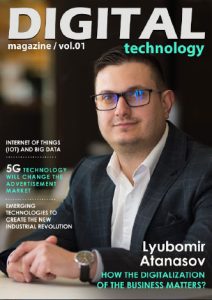Dr. Ismail Sayeed
Physician. Entrepreneur. Author. Startup Founder. Mentor.
MBBS MMed MSc | Global Health entrepreneur | Amazon Author | Founder of VIOS, A medical app for Doctors, made by Doctors
The 21st century is not like the previous eras in human history. The Industrial revolution was a boon to mankind as much as the science of hygiene and preventive medicine. The previous century provided the gateway to the virtual marketplace, the online platform for the instantaneous trade of goods and services, at a click of a plastic key, free from geographic boundaries. The digital biosphere is intricately maintained and promoted by millions of connected buyers and customers, who can often switch roles faster than the speed of thought. The new digital economy has created the well known gig economy, the ability to sell highly specialised niche services at an affordable price to a worldwide market.
This freedom from strictly governed societal roles that used to exist during the time of mass corporatisation of industries has given people the chance to earn a sustainable livelihood using digital tools and crafted services. There is no better time to be a digital entrepreneur than this new century as access to information via democratised technology is now widely available. No longer do people have to be defined by the teachings of an institution, and nothing else, and also work in industries that claim to be in need of such highly educated professionals.
Even as the 4th Industrial Revolution, AI and other ultra specialised phenomena sweep the globe, human resources management has not aligned its core strategies to help give skilled individuals a chance to a decent earned livelihood. The Health sector is perhaps the worst organised and poorly optimised industry till date. Although rapid strides in public health activities has greatly expanded our lifespans, which is directly correlated with increased global GDP and ofcourse rising out of poverty, there is a pandemic of societal injustice to healthcare professionals.
If you are a doctor reading this, or have a doctor associate in your social circle, you know very well the difficult tasks that we have agreed to take on as part of a lifelong investment in caring for our human brethren. We sacrificed almost an entire decade of our productive lives to learn about the frailty of the human condition. We spent countless hours in memorising diseases and dosages, fine-tuning delicate movements in deliveries, bone setting, suturing, palpation and performing various surgical intervention, and let us not forget the mentally exhausting act of continuous medical education by way of highly standardised examinations. Continuously spending expensive resources on the rapid acquisitions of domestic and foreign degrees. In the hopes of being translated into the possibility of a fulfilling and prosperous lifelong career.
If you are reading this article, you and I have now realised the harsh reality of this charade.
Like me you too have successfully completed many years of rigorous military doctrine style training and have amassed a collection of degrees and other abbreviations that we can hang on the walls of our empty practices, or added to the end of our not-s0-significant names. Many of you may have asked your seniors by now about how we can ‘growth-hack’ our careers to atleast make ends meet. Surely there is some secret method to earn more money, without taking up even more debt for the next degree? Your seniors would say not to obsess over money as the medical career is a noble/humble pursuit to help heal our fellow neighbor.
- Some would perhaps recommend that you close down your private chamber and join a large corporate medical organisation
- If you are already in a massive hospital, then maybe you should resign and start your own practice
- Have you considered moving abroad to work in a massive hospital or private practice in that country?
The frustrating circle of the same advice from almost retired physicians, who are well versed in the norms of a bygone era, often demotivates the healthcare professional from leading a purposeful life and puts a great strain on the quality of their long term career motives. Many have resigned to the fate that one must intentionally lead a humble but debt-ridden lifestyle, when their peers from other professions have greatly advanced their financial stability.



